Nonviolence



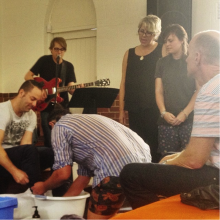
Oh, Sarah Palin.
So you’ve most likely heard Sarah Palin used baptism as a metaphor for waterboarding terrorists. (I mean I heard and I’m in Australia!) I found out when fellow neo-Anabaptist Tyler Tully sent me his reflections. Many are blogging thoughtful responses. But more and more this is my conviction: the best critique of the bad is the practice of the beautiful. So I want to testify to the beauty of the baptisms I was a part of on Sunday.
I do so knowing that the despondence and darkness I feel when baptism is equated with the diabolical is driven out in the joy of the mystery of what happen when we say yes to the Holy Spirit by wading in the water. Our new sister Natha, brother Ky, and I met separately in the End Poverty movement. Both of them, in quiet different ways, found themselves being found by God while looking for a better world. And in Jesus they found the world they were looking for has started! Without a dry eye in the community that surrounded them on Sunday, they shared their wanderings in the wilderness before following Jesus through the waters.



Make no mistake: the Gospel is political.
Politics refers to “the affairs of the city” and “influencing other people on a civic or individual level.”
Throughout his life, death, and resurrection, Jesus is political. He influences people to live into the Kingdom of Heaven. For Jesus, Heaven is not essentially some place off in the distance where you go after you die. No, Heaven is a way of life to be lived right here, right now. We see this clearly in the prayer he taught his disciples:
Thy kingdom come, thy will be done on earth as it is in heaven.
When Jesus entered Jerusalem riding a donkey on Palm Sunday, he was performing a political act. But it was a political act unlike any other.

On March 28 at about 4 p.m., the Afghan Peace Volunteers heard a loud explosion nearby. For the rest of the evening and night, they anxiously waited for the sound of rocket fire and firing to stop. It was reported that a 10-year-old girl, and the four assailants, were killed.
Four days later, they circulated a video, poem and photos prefaced by this note:
“We had been thinking about an appropriate response to the violence perpetrated by the Taliban, other militia, the Afghan government, and the U.S./NATO coalition of 50 countries.
So, on the 31st of March 2014, in building alternatives and saying ‘no’ to all violence and all forms of war-making, a few of us went to an area near the place which was attacked, and there, we planted some trees. -- Love and thanks, The Afghan Peace Volunteers"

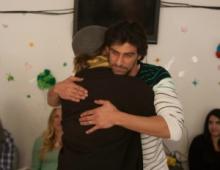
Having just gotten home from guiding another The Global Immersion Project Learning Community deep into the lives of the unheralded heroes in the Holy Land to learn from their often untold stories, I am processing emotions, thoughts, and reflections that will soon bud into a renewed set of practices at home and abroad. I have now been to Israel/Palestine quite a few times, and it would be easy to think the experience becomes mechanical or normal or whatever. Well, for me, that simply hasn’t been the case. We encourage our participants to enter the experience in the posture of a learner rather than a hero. I try to do the same, and in doing so, am continually convicted, challenged, and inspired by our remarkable friends and peacemakers embedded within this conflict.
Here are 7 learnings that have risen to the surface since landing back on home soil:


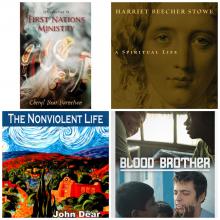
Faith and Reform
Writer and social reform Harriet Beecher Stowe’s controversial 1852 novel Uncle Tom’s Cabin brought many people to the anti-slavery movement. In Harriet Beecher Stowe: A Spiritual Life, biographer Nancy Koester illuminates the shifting role and expression of faith in Stowe’s personal and public life and work. Wm. B. Eerdmans
Falling into Love
A few years ago a young man named Rocky Braat left Pittsburgh to wander India; he’s ended up working for years in an orphanage for HIV-positive children there. His friend, filmmaker Steve Hoover, went to explore why. The result is a Sundance-award-winning documentary, Blood Brother. www.bloodbrotherfilm.com
WHEN I FOUND out years ago that most early Pentecostal denominations had been committed to nonviolence—including the Assemblies of God, the denomination of my heritage—I thought it was about the dumbest thing I’d ever heard. Not kill for the United States of America (or any country)?
Then I stumbled upon the Pentecostal Evangel, a weekly magazine of the Assemblies of God (USA), which published these revealing words during World War I:
From the very beginning the [Pentecostal] movement has been characterized by Quaker principles. The laws of the Kingdom, laid down by our elder brother, Jesus Christ, in the Sermon on the Mount, have been unqualifiedly adopted, consequently the movement has found itself opposed to the spilling of the blood of any man.
This was new to me. I was reared in a U.S. Pentecostalism that taught intense loyalty to the United States and deep pride in combatant military service. Where did this hidden history of Pentecostal nonviolence come from?
Reading other early accounts of Pentecostal peacemaking prompted me to further examine where it had gone and whether it could re-emerge. It would also challenge and deconstruct my understanding of Christianity.
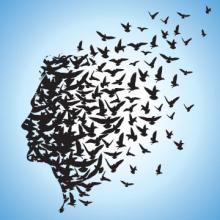
I was down in Mexico a few years ago for a gathering of peers who are leading faith communities around the world. It was a rich time of conversation, encouragement, and visioning.
Walking through a local Mexican neighborhood between sessions, something struck me. While those of us in the Minority World (often called the 1st or Western World) are thinking and talking about our theology, most of the folks in the Majority World (often called the 3rd World) have no choice but to simply live into their theology. Talking about our theology, faith, and practice in lecture halls, church buildings, and conference rooms is a luxury that the vast majority of Jesus followers in the world have no opportunity to participate in.
It’s not necessarily a bad thing, but it is reality. And those of us with this luxury better own up to it, because it is easy for us in the West to think we have a corner on the market of theology, which we then project (whether consciously or subconsciously) onto the rest of the world. But who's to say theology built in academia is any more valid than theology build in the realities of everyday life?
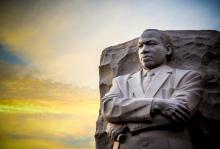
Week after bloody week, the chart of killings lengthens. And in Afghanistan, while war rages, a million children are estimated to suffer from acute malnourishment as the country faces a worsening hunger crisis.
Around this Martin Luther King, Jr. Day, we can and should remember the dream Dr. King announced before the Lincoln Memorial, the dream he did so much to accomplish, remembering his call (as the King Center asks) for nonviolent solutions to desperate concerns of discrimination and inequality within the U.S. But we shouldn't let ourselves forget the full extent of Dr. King's vision, the urgent tasks he urgently set us to fulfill on his behalf, so many of them left unfinished nearly 46 years after he was taken from us.
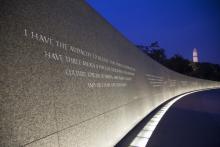
Prophets are always asking questions. Tough questions. Unsettling questions. Questions that they pose to themselves, then try to answer by how they live.
Questions such as:
What’s in our hearts? Are we concerned too much about ourselves and too little about others? Do we believe in love? Why do we give in so readily to bitterness and hatred?
Why do so few have so much, while so many have so little? Aren’t we all diminished by the poverty, discrimination, violence, and the various injustices in our world? Why do we glamorize violence and weapons as solutions to our problems?
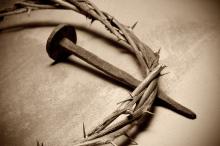
(Editor's Note: This post was adapted from the author's speech at the Christianity 21 Conference in Denver.)
When I was in seminary, one of my best friends came up with a brilliant theological … pick up line:
"Hey, baby. What’s your hermeneutic?"
Despite the genius of that question, we soon discovered that anytime you start a pick up line with “Hey, baby” you’re in some trouble.
But it’s such a great question. Think of all the relationships that would have avoided painful break ups if they just defined the relationship in the beginning by answering the question “What’s your hermeneutic?"
What a relief it would be to dwell in [faith] communities where we acknowledge our shadows in a healthy acceptance of ourselves as containers of all the opposites! It may prove beneficial to be forced to face, daily, the humiliating fact that some of us are no less violent than those whose policies we oppose.
—Walter Wink, Engaging the Powers
I AM A conscientious objector, and I am drawn to violence. My attraction to violence is both innate and learned. When something frightens me, my hands clench into fists. When something angers me, I want to inflict pain upon that thing. But a person cannot inflict pain upon a thing, so I seek out those whom I deem responsible for said thing and my desire to inflict pain upon a thing morphs into a desire to do violence to another person. Since I was a child, I have fantasized about using violence to stop what I see as bad and thereby become good.
It is from this point—from these fantasies of righteous violence—that I begin this essay on my journey to principled nonviolence and conscientious objection. This is a story of change and choice, but it is not a story of transformation: I am who I have always been.
In fall 2012, I spent three weeks in Israeli military prison for refusing to enlist in the Israel Defense Forces. (Every Israeli citizen, except for the ultra-Orthodox and Palestinian citizens of Israel, must serve in the military.) My sentence was brief, but the process that brought me to the prison’s gates took almost a decade.